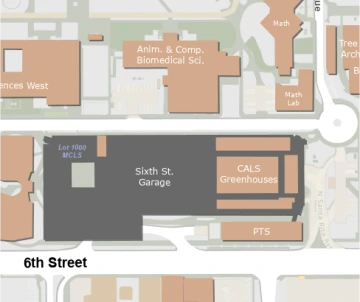
Do not ship on Fridays, as we are closed on weekends.
Ravishankar Lab
ACBS Building Room 210
1117 E Lowell St,
Tucson, AZ 85721
- Follow strict hygienic practices to prevent contamination with microorganisms.
- The sample must be taken from a batch of the food product in a clean container with utensils (ladle, spoon, etc.) that are clean.
- Take numerous samples from different places of the batch (two from the top, two from the center, two from the bottom) rather than from one location. If unsure, please ask via email regarding your specific products.
If the product is not shelf stable, then the sample needs to be taken to the laboratory the same day the sample is made or sent by overnight shipping (samples will need to be carefully packed to avoid breakage, and shipped overnight with a cool pack). If the sample is shelf stable, then the sample can be shipped or taken to the laboratory at your earliest convenience. Unless the food is a frozen product, do not freeze the sample. If the sample is going to be shipped, the shipping method would vary depending on the food sample. Please check with us regarding shipping of your sample.
The laboratory should be notified at least 1 week in advance.
The payment is due when the samples are dropped-off. If the samples are shipped, then the payment should be sent along with the samples but can be sent in a separate envelope (secured in a plastic bag). The accepted payment methods are checks payable to: University of Arizona, ACH, and credit card payment (credit card payment have a fee of 3.5%). A mandatory University of Arizona administrative 18% charge is added to all totals. Note: Prices and fees (and examples) can be found under the “Services” tab.
ACH Transfer Info:
J.P. Morgan Chase
The University of Arizona
Controllers Depository Account
201 N. Central Ave, Floor 21
Phoenix, AZ 85004-8001
Account #577569731; Routing #122100024
- Shelf life: Salsas, sauces, soups, juices, food products that are canned or are meant to last a certain duration. Depending on the product, common tests are aerobic plate counts (APC), coliforms, yeasts and molds, pH and water activity.
- HACCP plans and process authority letters: Depending on the product, common tests are aerobic plate counts (APC), coliforms, yeasts and molds, pH and water activity.
- Specific Pathogen Testing: All food products can be tested. Most commonly tested pathogens are:
- For produce and juices: E. coli O157:H7, Salmonella, and Listeria monocytogenes
- For products with meat, dairy, or eggs: Salmonella, Listeria monocytogenes, Staphylococcus aureus
- Food contact surface and air/environmental sampling: To detect possible foodborne contaminants in the equipment, and in the environment of the facility.
- Aflatoxin: To detect the toxin produced by the fungus Aspergillus spp. Usually it can be present on all agricultural commodities including nuts, flours, fruits, vegetables, and spices, so these types of foods are recommended to be tested for aflatoxin.
The results are delivered in the form of a report via email.
The average wait time depends on the number of products tested and the types of tests. Simple pH and water activity testing can range from 4-7 business days. Testing for APC, coliforms, yeasts and molds, and pathogens range from 7-10 days. If samples are positive for pathogens, confirmation will take an additional week. Shelf-life testing depends on the number of timepoints. If results are needed urgently, we can work with you to make that happen.
The HACCP assistance has a rate of $120/hour. The total cost will depend on the amount of hours needed.
More information available under the “Services” tab.
The process authority letter has a cost of $120/hour. The total cost will be dependent on the total number of hours needed to complete the process. Testing costs are separate.
More information available under the "Services" tab.
Communicate with us via the contact us tab or email (bibiana@arizona.edu and zhulibin@arizona.edu). We will need detailed product information, which includes the ingredient list, description of the process, and container/packaging descriptions. Click here for a template to fill out if you don't already have this information documented. We will evaluate the documents and communicate with you what tests are needed. Once the process is deemed to be safe, the process authority letter will be provided.
Hazard Analysis Critical Control Points (HACCP) is an internationally recognized management system set forth to make sure that the food company is following the necessary protocols to ensure the safety of the food product, and covers how the company is going to manage a potential food safety risk. The process authority letter is a letter that presents the laboratory testing results, and how well the preservation step of the product is conducted, in other words if the food product was manufactured safely following the FDA and USDA guidelines. This document is a review conducted by the Recognized Process Authority in our lab, and lets the state/county health department and/or FDA know that the process used for your food product produces a safe product.
Chemical composition and nutritional labeling services are offered by another UA facility. For services such as protein analysis, lipid extraction, ash, moisture, and nutritional label analyses for all types of food items, please go to: https://acbs.arizona.edu/food-products-safety-laboratory/testing
